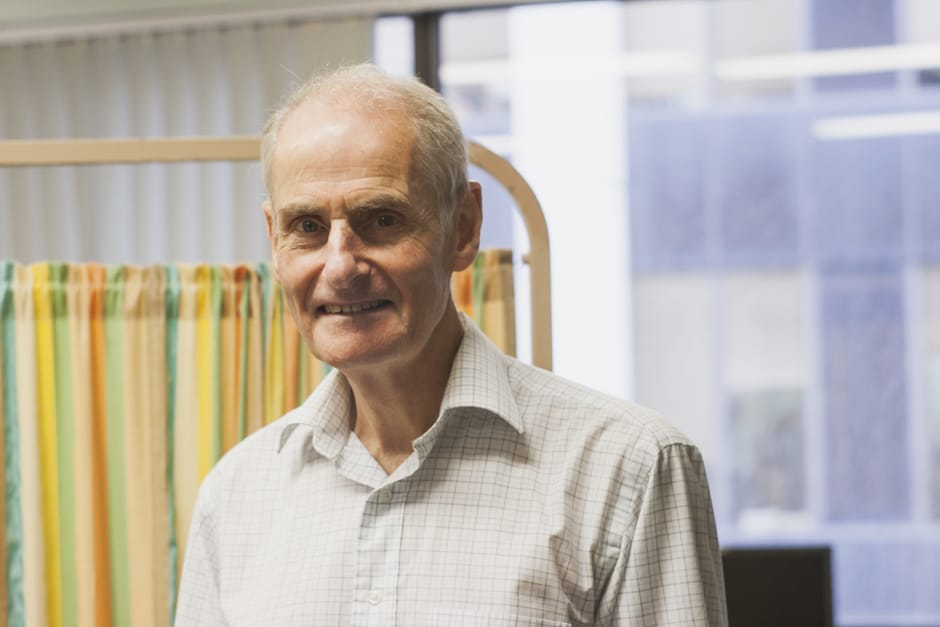Dr. David Jenkins is the director of the Risk Factor Modification Centre at St. Michael’s Hospital, in addition to being the Canada research chair in nutrition and metabolism at the Department of Medicine and Nutritional Sciences at U of T. Born and raised in London, England, he pursued both his undergraduate and graduate studies at Oxford University.
Jenkins recently spoke to The Varsity about his interest in the sciences and the superiority of plant-based diets, among other things.
The Varsity: Could you tell us about your scientific interests and your reason behind choosing research as a career?
David Jenkins: I’ve always wanted to research; my father was a doctor. When I was young, I thought everything would be cured by medicine. And then he would take me around the hospital and I would see sick people. And then I would hear later, with some distress, that some people had passed on. I realized then that medicine was absolutely not infallible and my father and his colleagues were not infallible. And I realized, because of the conversations I’d had, that we needed to know more about this and more about that. I realized that there was much more excitement and worthwhileness, in doing research than there was in just doing individual treatment. So I realized at a very early age that that’s where I would have to go. But I was much more interested in outdoor activities; I wasn’t terribly interested in school. I just assumed that that was something that would pass. And then you went to medical school and then you went on to do research. It was a rude awakening when I was about 16 and I realized that things weren’t going to be handed to you on a plate, and that you’d have to be fairly resourceful and inventive in positioning yourself to get where you needed to go. And then for quite a while, I hit the books as hard as I could and I did modestly in examinations. I was quite good at biology and chemistry, and I had an aversion to physics and mathematics so that coaxed me along. I was quite lucky in meeting people who helped me along the way and opened doors. I think it was just sheer good fortune that I got into med school and I was able to do research quite early on.
TV: What are the risks associated with extreme dieting, for example, paleo diets?
DJ: I think, to be honest, Dr. Atkins started out with these low-carbohydrate diets. Everyone thought he was crazy when he said that you could have as much saturated fats and cholesterol as you’d like, just avoid carbohydrates. He changed to a diet that emphasized low glycemic-index foods. He changed peoples’ thinking about fats and I think our diets, in terms of advocacy, tend to be higher in protein and more liberal with the right sort of fats. And I don’t think that will do any harm, but I do think that extreme diets are very hard to maintain. So with these diets, people stick to them for a short while and give up. It may cause confusion in the minds of people as to what is a good diet; is there a universal diet? And I think plant-based diets and fruits, vegetables, legumes, nuts, and seeds are the way of the future. It’s interesting that we’re coming to this conclusion nutritionally just as environmentalists are coming to this conclusion ecologically.
TV: You recently published a follow-up study on your prior research about the cardiac benefits of almond consumption. Could you elaborate on the benefits of almonds and other nuts?
DJ: We used to think nuts were bad for you. Nuts have made a 180-degree turn; they are good foods, for several reasons: they’ve got vegetable protein, vegetable fats, no cholesterol, and many of them are full of antioxidants. So they are good, especially from a heart health profile and an anti-diabetes profile. Chewing on nuts gives you a feeling of satiety.
TV: What are the risks associated with the dichotomization of foods into either good or bad, and no grey areas?
DJ: I think Shakespeare said, ‘There is nothing either good or bad but thinking makes it so.’ And that’s probably so for food — anything is not good in excess. Any food you eat is likely to cause a problem if you eat too much of it. Some foods are essential in a very small amount such as micronutrients like chromium but are toxic in high amounts.
TV: Do you have any advice for students who are living on a budget, yet trying to eat healthy, nutritious food?
DJ: Plant-based diets can be expensive but can be eaten cheaply if you can make things from scratch. You can get legumes — beans, peas, lentils — and make soups and stews which are good because they’re protein-rich and have fibre. If you are eating out, there are Buddhist-Chinese vegetarian restaurants where you can get healthy vegetables for quite cheap, but otherwise you can eat at home. You can eat a peanut butter and banana split when you want to treat yourself. Just remember to eat your green, leafy vegetables and fruits — a lot of students forget those. I think we should have basic cooking classes for students and students that are going to university should see a dietician to see what their needs are. But avoid eating deep-fried foods and white and refined foods; always try to go the whole grain route. If you have a lot of assignments and tests coming up, make sure you have some trail mix in the house.
This interview has been edited and condensed for clarity and length.


